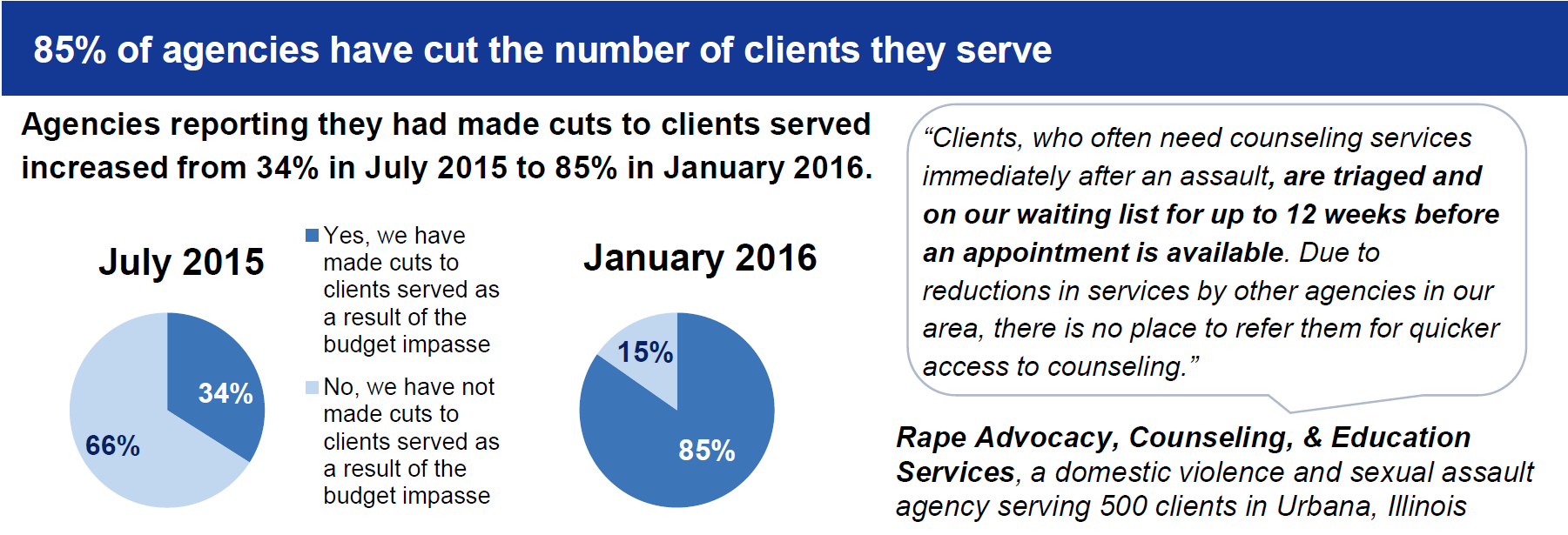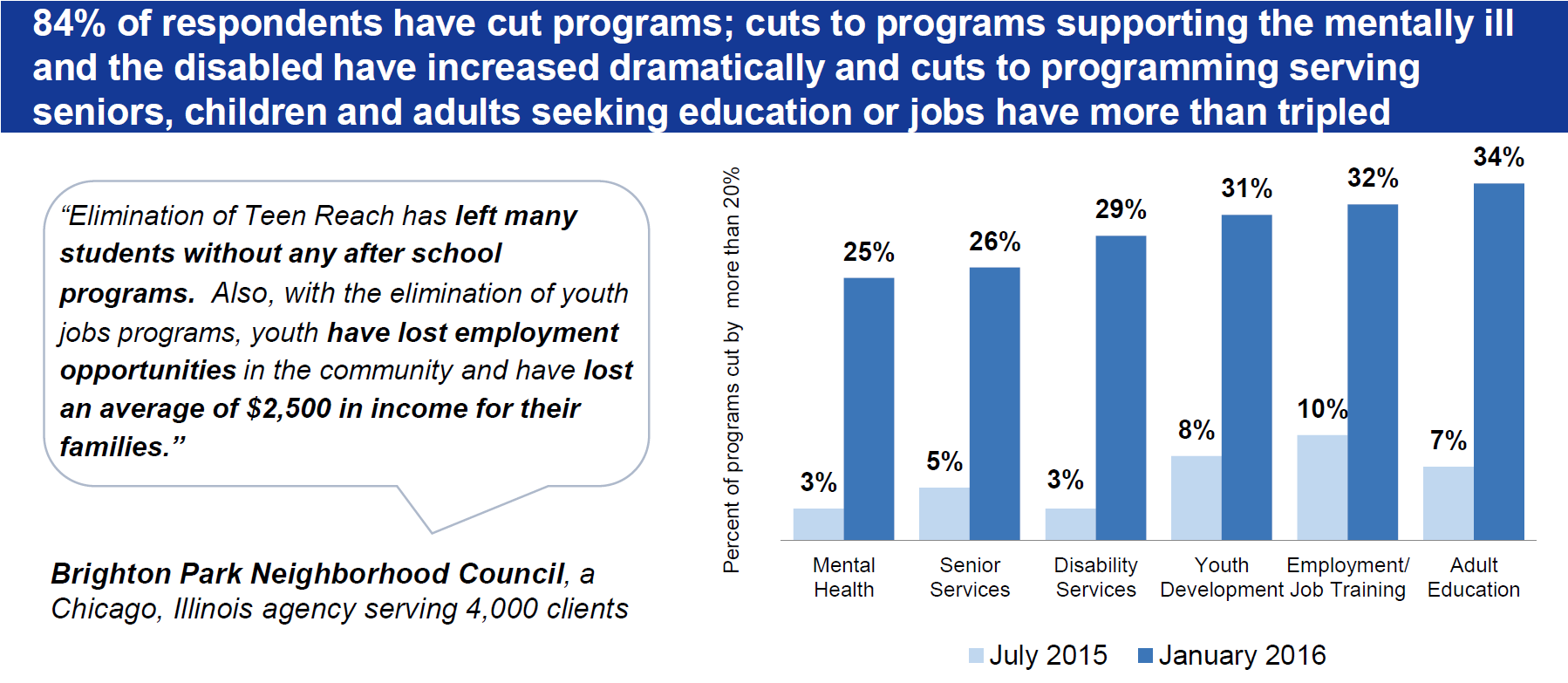UWI Budget Survey Results
Seven Months into State Budget Impasse, United Way of Illinois Survey Shows Extensive Cuts to Human Service Programs and Harm to Sector
23% of agencies report they will struggle to operate at existing levels if budget impasse continues through March
CHICAGO, Jan. 26, 2016 (via PRNewswire-USNewswire) — A new survey conducted by United Way of Illinois, the statewide association of 52 local United Ways and the largest non-governmental funder of health and human services in the state, shows the deepening impact of the budget impasse on the most vulnerable citizens across Illinois and on the human service sector overall.
Results from the third state-wide survey indicate that human service agencies are reaching a tipping point in trying to deliver services and maintain operations amidst continued uncertainty due to the budget impasse. Agencies reported shuttering programs, significantly reducing the number of clients they can serve, draining cash reserves and going further into debt by utilizing lines of credit. Twenty-three percent of agencies reported they will struggle to operate at existing levels if the budget impasse continues through March.
“It is our seventh month without a budget and there is real damage being done to our neediest children and families, and to our human services infrastructure,” said Kristi Long, Chairman of United Way of Illinois, “Disabled children need critical support, adults who want and need employment need job training, and people who require mental health care and medication need those services.”
Key findings from the third survey reinforce the impact of the budget impasse on programs and services for people across Illinois. As of January 2016:
- 85% of survey respondents reported cutting the number of clients they serve, up from 34% in July 2015
- 84% of survey respondents reported cutting programs; since July 2015:
- Cuts to programs supporting the mentally ill have risen from 3% to 25%
- Cuts to programs supporting the disabled have risen from 3% to 29%
- Cuts to programming supporting seniors, children and adults seeking education or jobs have more than tripled
“We receive funding from the state of Illinois for home delivered meals,” said Carole Creason, Executive Director of Seniors Assistance Center in Norridge, Illinois, “If the impasse continues, we will have to reduce the number of meals served by half, requiring us to decide who eats and who doesn’t.”
Survey findings also highlight the financial strain the impasse is having on the state’s human service infrastructure:
- 49% of respondents have tapped into their cash reserves
- 26% of respondents have utilized lines of credit
- Respondents have taken on a combined $35 million in debt
- The average credit extension taken on by respondents was $300,000
- 27% of respondents have been forced to lay off staff and 5% reported having to skip payroll
United Way organizations around the state and their partner agencies are gathering in Springfield today to discuss the findings of the survey and share with government leaders the current and long-term implications of the budget impasse.
This is the third survey conducted by United Way of Illinois on the state budget stalemate. The survey was conducted January 6-January 13, 2016, and responses were received from 444 human services agencies across every county in Illinois. Survey respondents represented a range of service categories including youth development, early childhood education, mental health, emergency housing, senior services and employment training and varied in budget size from less than $500,000 to more than $15 million.
For more information about the survey or to schedule interviews, please contact Jarid Brown at 217-836-2656 or jbrown@uwcil.org, or Karyn Ruhl at 847-431-7068 or karyn.ruhl@uw-mc.org.
PDF: 3rd State Budget Survey Results
ABOUT UNITED WAY OF ILLINOIS
United Way of Illinois is a statewide association of 52 local United Way organizations focused on long-term community change through resources in education, income, health and basic needs. United Way advocates for sound policies affecting the non-profit sector’s capability to serve vulnerable populations.






